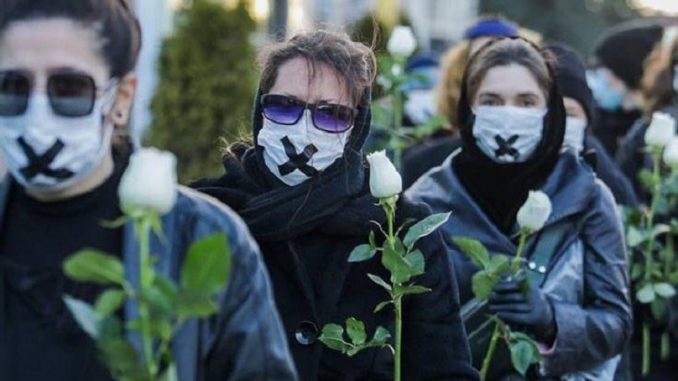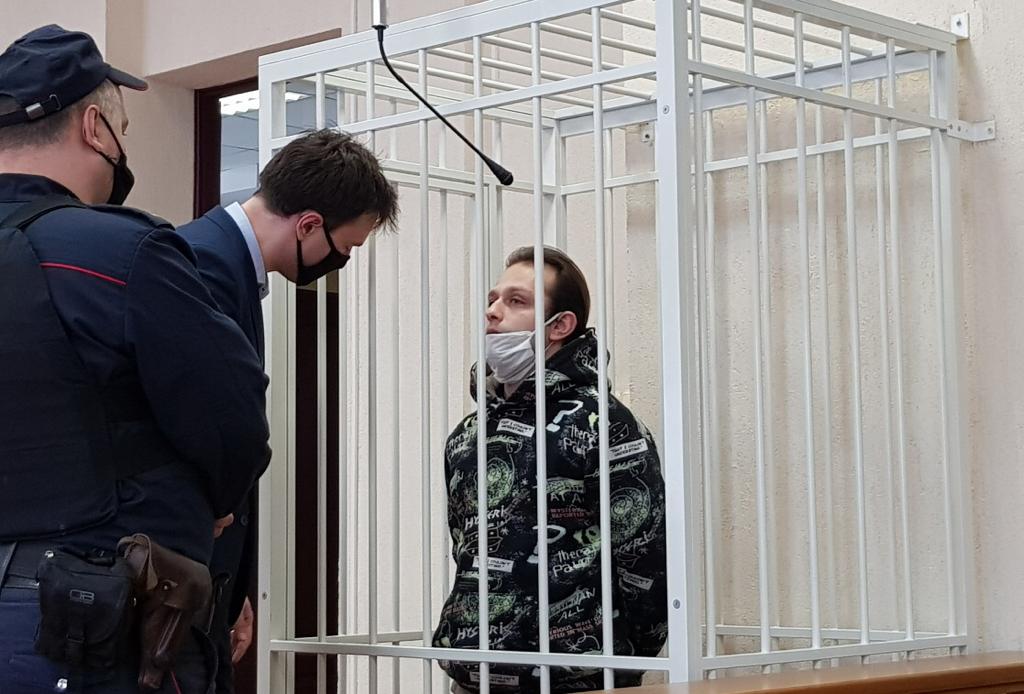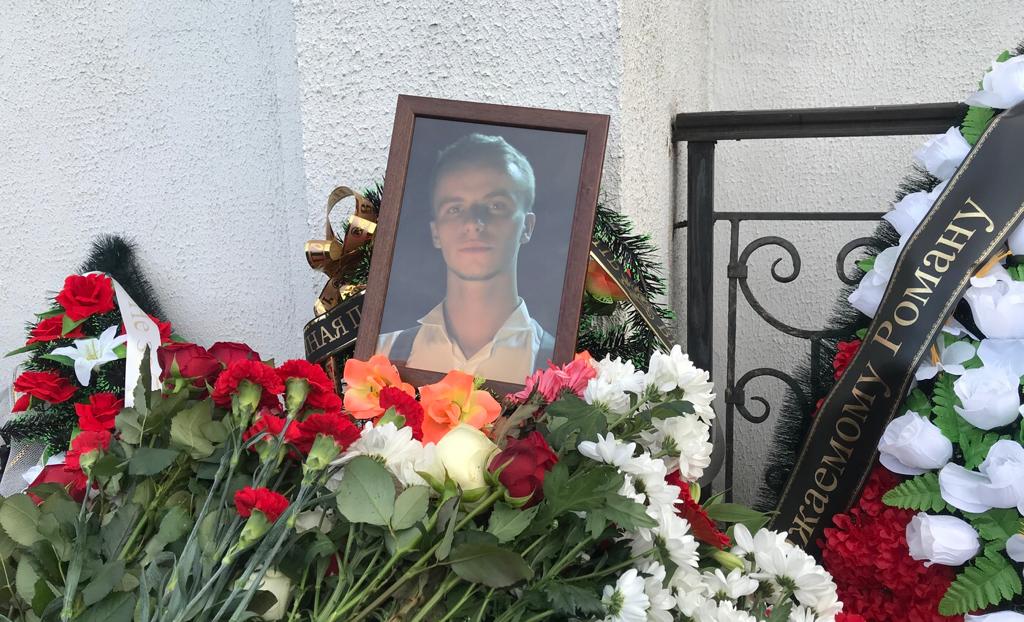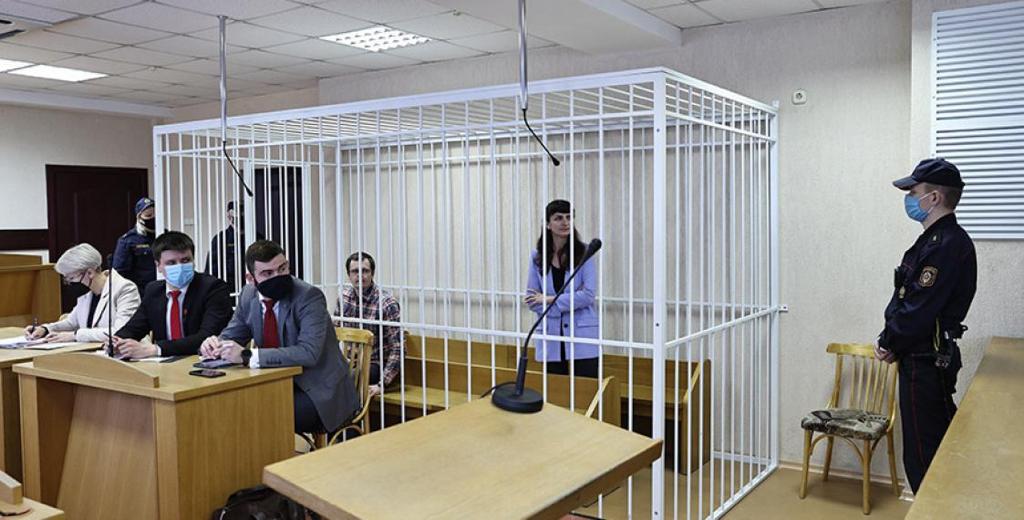
By Jan Kryzhkevich
On March 5, participants in the founding conference of the League of Student Associations were arrested in Minsk. At the conference, plans were drawn to establish a student union, hold leadership elections, adopt action programs, discuss the organization’s work plans, and reports from the leaders of local student organizations were heard. At 6:30 p.m., unknown masked men burst into the event, all the participants of the conference were taken by force to the district police station and temporary detention center. According to the latest information, some 30 people were arrested.
Thus ended the first legal attempt to create a republican trade union organization of Belarusian students, an attempt to exercise the legal right of the citizens of Belarus guaranteed by the Constitution of the country. Indeed, it was strange to expect a different outcome in the state where the court found the murdered Gennady Shutov guilty, a driver who was shot in the neck by an officer of the military special operations forces dressed in civilian clothes. In a country where Aleksandr Kordyukov, who witnessed this murder, was sentenced to ten years in a maximum security penal colony for allegedly using violence against the armymen, who at that time were also wearing civilian clothes and provoked the protesters.
What kind of civil rights and freedoms can we speak of when journalists Daria Chultsova and Katerina Andreeva were sentenced to two years in prison for fulfilling their professional duties: media coverage of protest events? What kind of law can we speak of in a country where policemen, with people using other names, act as victims and witnesses in court? In a country where judges refuse to call witnesses on behalf of the accused, where lawyers who have taken the liberty of defending opponents of the current government, end up in jail on trumped-up charges or are deprived of their licenses for their professional activities.

The regime is very afraid of a new wave of protests. The skating rink of repression is gaining momentum. Cleaning up the field of protests as much as possible in a short time is the main task of the power bloc and the judicial system. This regime has no way to avoid large-scale street mobilization other than physical isolation of activists and psychological intimidation of everyone else. Power literally “rests on bayonets.” Belarus has not known such a scale of violence and anarchy since the days of Stalinism and the Nazi occupation. To date, subdivisions of the Investigation Committee have initiated 2407 criminal cases of the so-called “extremist orientation”. Literally, everything that contradicts the guidelines of state propaganda falls under the concept of “extremism.” So Alexander Nurdinov, aged 29, was sentenced to four years in a maximum security colony for throwing flowers at the police.
Today, almost anyone can be caught on the street or in their own apartment, imprisoned, beaten, mutilated, and even murdered. Since August last year, not a single security official has been sanctioned for abuse of power, excessive violence, beatings, torture and murder. The suspects in the murder of 31-year-old artist Roman Bondarenko, who was detained by the police in his own courtyard for protesting with symbols (white-red-white) and beaten to death four months ago, have not yet been officially named.

But the City Emergency Hospital doctor Artem Sorokin and journalist Yekaterina Borisevich were arrested and convicted for spreading information that the murdered Roman Bondarenko was sober (no alcohol in his blood), which contradicted the official version. The data from the medical examination was released with the permission of the victim’s mother. However, Artem Sorokin received two years in prison with a one-year suspended sentence and a fine of 1,450 Belarusian rubles ($580). Yekaterina Borisevich was sentenced to six months in prison and a fine of 2.9 thousand Belarusian rubles ($1,160).
And these are just a few examples of the total anarchy that the Belarusian people have recently faced. More than 34,000 Belarusians went through the grindstones of the repressive machinery, which is becoming increasingly difficult to stop. At the same time, the number of those who personally participate in state repressions or actively support them is growing. In the first place, they are police, military, investigators, prosecutors, judges, state propagandists, officials and activists of pro-government public organizations.
The objective of the regime is simple and obvious: to cover up as many citizens of the country as possible with crimes against humanity and to justify the repression. In the style of the Jesuits, by declaring this year the Year of National Unity, state propaganda is doing its best to light the fire of enmity and confrontation among Belarusians. The government is ready at any moment to unleash bloody terror and civil war to destroy and repress that part of society that today represents a real threat to its existence, under the false slogans of protecting independence and sovereignty from external enemies.
It is difficult to say how events will unfold even in the near future. Despite the fact that Belarusians continue to hold street protests, their number and scope are very low. The army and the police easily take over the street. There is no reason to expect that, along with the spring heat, hundreds of thousands of Belarusians will spontaneously take to the streets again. The stage of the protest element is almost over. In Belarusian society a real demand for organized action and the creation of capable opposition structures has matured. The unification of the strike committees of three large companies – OJSC “Grodno Azot”, Novopolotsk “Naftan” and the Belarusian Metallurgical Plant (BMZ), a legal attempt to create the League of Student Associations, the work of activists to establish the political organization “Our Party”, the creation of a digital platform “Meeting”, as a popular alternative to the current parliament, numerous unification initiatives at the territorial level, are all components of the general process of formation of a single political entity capable of taking charge of the organization of the protest movement.
Despite a notable reduction in outward manifestations of popular unrest in the winter, discontent with the current regime continues to grow. The intensification of repression in a context of massive layoffs, a sharp increase in prices and taxes, leaves no possibility for a peaceful solution to the national conflict between the illegitimate government and society. The economic base of the protest grows stronger by the day and may become a decisive factor in leading to a national strike and the overthrow of the dictatorship.
03/06/2021










